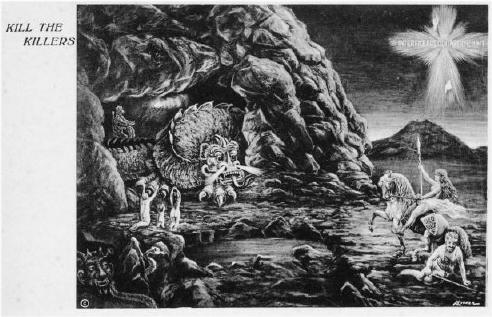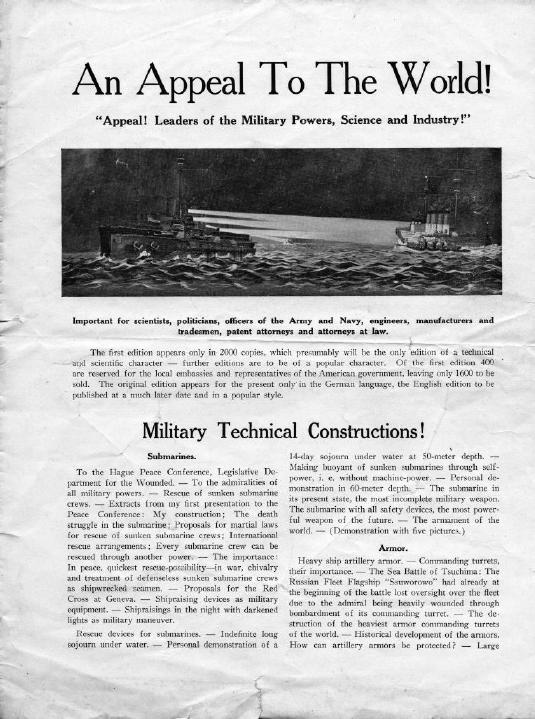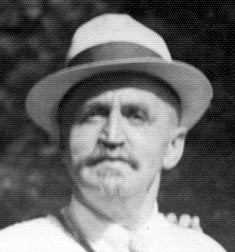 |
Walter KurzeLater Years - in the USA1922-1955 |
When my grandfather left Germany, he was in a highly regarded position in German society, having grown up around the royal court and going on to become an accomplished Engineer while in the Navy. He traveled to America with the understanding that he was coming as an emissary of his government in order to discuss the sale of ideas and inventions he had developed while in Germany. He expected an official welcome and to be treated with the deference he felt his position deserved.
When he arrived at Ellis Island they told him they had never heard of him - essentially to go get in line with the rest of the immigrants. Thus he ended up in the US unknown, out of money, no knowledge of the language, no way back home, and his hopes dashed. By this time he was well into his 40's.
My grandmother, Hilda Quickert, was raised in a Swiss-German family in Illinois. Her large family was well placed in that world, with a large and prosperous farm. She was also a bit of a renegade for her time. During WW I she left the family farm to move to Washington DC and become a government clerk. She was in her mid-20's when she and my grand father ended up in the same boarding house. She heard him playing the piano and was captivated. They were married within a few short weeks. And it was this young kid who basically saved my grandfather by supporting him for the rest of his life.
This photo was taken early in their marriage:
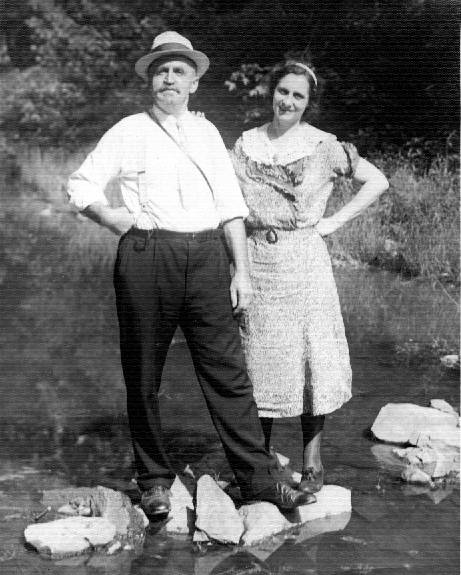
He still had his dreams, and my grandmother stayed up late at night writing the letters he would dictate to various heads of state and government officials, trying to get help and recognition. He continued, as much as possible, his inventing. Supposedly he developed an armor piercing bullet that was superior to anything of its day - this accomplished down in Mexico, where my grandmother accompanied him while pregnant with my mother. I heard tales from her of him shooting thousands of rounds of ammunition in the development. But he could get no one interested in his magic bullet. I have a dim memory of seeing the bullets, packed in grease in some sort of tin, when I was still quite young. When he died she buried the bullets to hide them, and regardless of how I pleaded she would not tell me where they were. I don't know if they were ever dug up again.
Besides his scientific interests, he was also a concert pianist and a visionary, seeing well past the time he was in. One of his endeavors was "Thinkers Publications". I don't know if he produced anything else as part of that enterprise, but I have some post cards that he had printed. Here is a sample of one of them:
He was an early feminist (in at least some regards) in that he held women in high regard - part of the description from the back of one of the postcards:
"...And not only is man the most highly developed among them, but also the most wretched! Why? Because of the unequalization of the two sexes as humans. Violence, folly, priesthood, and gold enslaved woman, exalted man, placing masculine strength above the high genius and magnanimity of woman! The earth is feebly illuminated as yet, but behold, already the dawn begins!..."You can see the entire set of postcards here.
While he may have held woman in high regard, there is also irony in that the women in his life (my grandmother and mother) played mainly a supporting role (literally) while he pursued his dreams and ideals. The paintings on the postcards used the three of them as models in many poses. You may recognize the lady on the horse with the spear in the postcard in the photo below:
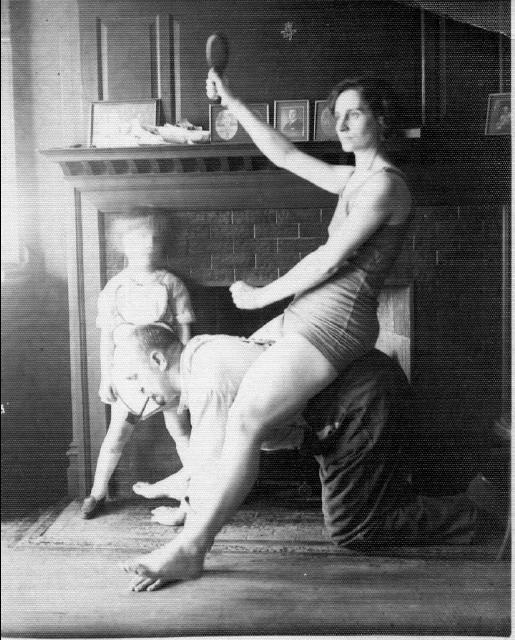
Another of his ventures was a book, an Appeal to the World , although I do not know if it was ever printed. All that I have seen is the pamphlet describing what is in it. I think if it had actually been printed a copy would have survived within the family:
You can see the entire appeal here. In it he mentions his ship raising record, some details of some dives he made, and some discussion of his armour piercing bullet. He had a great many other ideas as well, which are also mentioned in the Appeal. You can also get glimmers of some of the other things he had done. The reading is rough, as it was also translated by my grandmother, and she did not have the technical background to match some of his ideas.
His dreams died slowly, but not before they took a tremendous toll on my grandmother. She worked during the day to support them and then labored into the nights on his projects. In this picture she is working on a sculpture he designed. She is far from being the energetic young woman that married him.
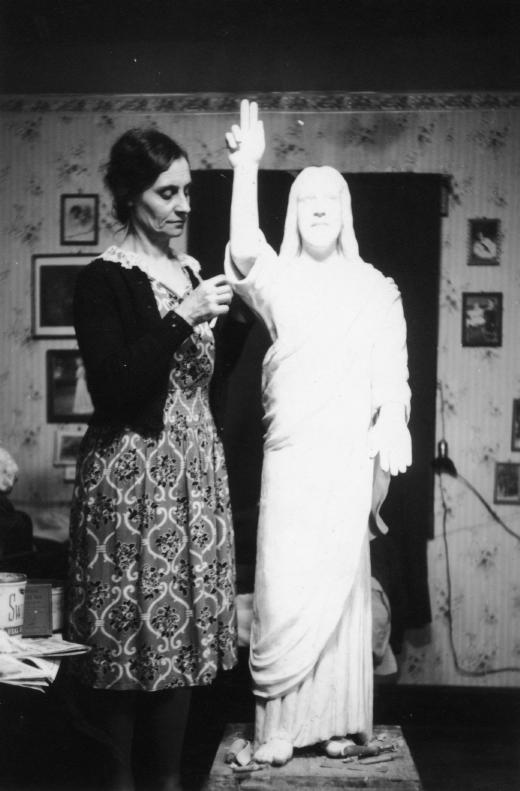
By the time I could remember him his dreams were gone, he was in poor health, and he had mellowed considerably. He started out taking care of me during the days when my mother and grandmother went off to work, and as I grew older the roles started to reverse as he became more feeble. This also meant that I had pretty free run of our rural property, surrounded by fields, streams and woods, as he could not keep up with me.
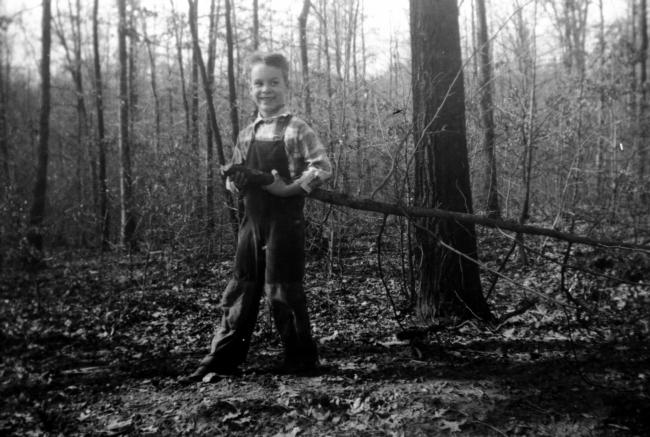
I can't imagine a much freer or happier childhood.
He died when I was 8, so I never had the chance to ask the questions I would have loved to have asked.
